Hair is more than just a crowning glory; it reflects our health, vitality, and identity. Understanding hair growth cycles is essential for anyone considering hair transplants.
This knowledge empowers individuals and helps achieve the best possible outcomes from hair transplant surgery. Let’s delve into the intricate world of hair growth cycles and how they impact the success of hair transplants.
Table of content
The Hair Growth Cycle
The hair growth cycle is a continuous process that consists of four distinct phases: anagen, catagen, telogen, and exogen. Each phase plays a crucial role in the development and shedding of hair.
Anagen Phase: The Growth Phase
The anagen phase, the active growth phase, is the hair growth cycle’s first and most extended phase. It’s during this phase that the magic of hair growth happens, with hair follicles actively producing new hair shafts.
Depending on genetics and overall health, this phase can last anywhere from two to seven years.
New Hair Growth: New hair growth occurs in the anagen phase. Hair follicles receive a rich blood supply that provides essential nutrients for healthy hair growth.
Healthy Hair Growth: Maintaining a healthy lifestyle, including proper nutrition and gentle hair care, can support prolonged and healthy hair growth during the anagen phase.
Catagen Phase: The Transition Phase
The catagen phase is a short transition period that lasts about two to three weeks. During this phase, hair growth slows, and the hair follicle shrinks.
Transition Phase: Hair follicles detach from the blood supply, and the hair bulb breaks down. This marks the end of active hair growth.
Hair Follicle Detaches: As the follicle shrinks, the hair shaft is pushed upwards, preparing to enter the next phase.
Telogen Phase: The Resting Phase
The telogen phase, known as the resting phase, lasts about three months. During this period, hair follicles are inactive, and hair strands neither grow nor fall out.
Resting Phase: Hair follicles remain dormant, and the existing hair is maintained.
Shedding Phase: Towards the end of the telogen phase, hair begins to shed naturally. This shedding is a normal part of the hair cycle and should not cause concern.
Exogen Phase: The Shedding Phase
The exogen phase is an extension of the telogen phase, during which old hairs are shed, and new hairs start to grow. This phase is critical for maintaining a healthy head of hair.
Hair Sheds: Old hairs fall out, allowing new hair growth.
New Hairs: Fresh hairs grow from the same follicle, continuing the cycle.
The Importance of Understanding Hair Growth Cycles in Hair Transplants
Hair Transplant Surgery and Hair Growth Cycles
Understanding hair growth cycles is crucial for hair transplant specialists as it influences various aspects of the hair transplant procedure.
- Timing of the Procedure: Knowing the phases of hair growth helps surgeons determine the best time for performing hair transplants. For instance, transplanting hair during the anagen phase ensures active hair growth post-surgery.
- Transplanted Hair: Hair follicles harvested during the anagen phase are more likely to survive and thrive in the recipient area, leading to better hair transplant results.
Maximizing Hair Transplant Results
To achieve the best results from hair transplants, it is essential to consider the hair growth cycle. Here are some ways to maximize the effectiveness of hair transplants:
- Initial Consultation: During the initial consultation, hair transplant specialists assess the patient’s hair growth cycle and overall hair health. This evaluation helps create a tailored treatment plan that aligns with the natural hair growth cycle.
- Post-Operative Care: Following post-operative care instructions is vital for supporting the transplanted hair through the various phases of the hair cycle. Proper hair care, including gentle washing and avoiding tight hairstyles, can prevent damage to newly transplanted hair.
Maintaining Healthy Hair Growth
Healthy Lifestyle
A healthy lifestyle plays a significant role in maintaining healthy hair growth. Here are some tips to support your hair through its natural growth cycle:
- Nutrition: Consuming a balanced diet rich in vitamins and minerals supports hair health. Foods high in protein, iron, and omega-3 fatty acids are particularly beneficial for hair growth.
- Hydration: Staying hydrated ensures that your hair follicles receive the nutrients and oxygen from the bloodstream.
- Stress Management: High-stress levels can disrupt the hair growth cycle, leading to conditions like telogen effluvium, where excessive shedding occurs. Practices like yoga, meditation, and regular exercise can help manage stress.
Proper Hair Care
Gentle and consistent hair care is essential for maintaining healthy hair through its growth cycle:
- Gentle Washing: Use mild shampoos and conditioners free from harsh chemicals. Avoid excessive washing, which can strip the hair of its natural oils.
- Avoid Tight Hairstyles: Hairstyles that pull on the hair, such as tight ponytails or braids, can cause stress on the hair follicles and lead to hair thinning.
- Regular Trimming: Regular haircuts help prevent split ends and keep the hair looking healthy and vibrant.
Hair Loss and Hair Growth Cycles
Male Pattern Baldness
Male pattern baldness is a common cause of hair loss that affects the hair growth cycle. It is characterized by progressive hair thinning, primarily due to genetic and hormonal factors.
- Impact on Hair Growth Cycle: In male pattern baldness, the anagen phase becomes shorter, and the telogen phase becomes longer. This leads to thinner hair and increased hair shedding.
- Hair Transplants as a Solution: Hair transplants can effectively address male pattern baldness by transplanting healthy hair follicles from areas with active growth to areas experiencing hair loss.
Other Hair Loss Conditions
Various other conditions can affect the hair growth cycle, leading to hair loss:
- Alopecia Areata: An autoimmune disorder where the immune system attacks hair follicles, causing hair to fall out in patches.
- Telogen Effluvium: A condition where many hair follicles enter the telogen phase simultaneously, leading to excessive shedding.
- Hair Thinning: Gradual hair thinning due to aging, hormonal changes, or medical conditions.
The Role of Hair Transplant Specialists
Expertise in Hair Growth Cycles
Hair transplant specialists are crucial in understanding and utilizing the hair growth cycle for successful hair transplants. Their expertise ensures that:
- Optimal Timing: Hair transplants are performed at the optimal time to align with the natural hair growth cycle, maximizing the chances of successful hair regrowth.
- Personalized Treatment Plans: Specialists create tailored treatment plans based on the individual’s hair growth cycle and specific hair loss pattern, ensuring personalized care.
Innovative Techniques
Advancements in hair transplantation techniques have made it possible to achieve natural-looking results by respecting the hair growth cycle:
- Follicular Unit Extraction (FUE): This technique involves extracting individual hair follicles and transplanting them to the recipient area. FUE allows for minimal scarring and quicker recovery.
- Follicular Unit Transplantation (FUT): Also known as the strip method, FUT involves removing a strip of scalp and dissecting it into individual grafts. This technique is ideal for patients requiring a larger number of grafts.
Ensuring Healthy Hair Growth Post-Transplant
Post-Operative Care
Following the proper post-operative care is crucial for ensuring healthy hair growth after a transplant:
- Proper Hair Care: Gently washing the hair and avoiding harsh treatments can help maintain the health of transplanted hair.
- Scalp Care: Keeping the scalp clean and moisturized promotes healing and supports new hair growth.
- Medication: In some cases, medications may be prescribed to support hair growth and prevent further hair loss.
Monitoring Hair Growth
Regular follow-up appointments with your hair transplant specialist are essential for monitoring the progress of hair growth:
- Assessing Hair Growth: Specialists will assess the growth of transplanted hair and ensure it aligns with the natural hair growth cycle.
- Addressing Concerns: Any concerns or issues that arise during the recovery period can be promptly addressed to ensure optimal results.
The Journey to Luscious Locks
From Consultation to Completion
Understanding the hair growth cycle is the key to effective hair transplants. At Zoom Clinic, our commitment to comprehensive care ensures that every step of your hair restoration journey is aligned with the natural hair growth cycle.
From the initial consultation to the final stage of hair growth, our experienced hair transplant specialists provide personalized attention and support to achieve natural-looking and healthy hair.
Achieving Healthy Hair
Maintaining healthy hair requires a combination of proper hair care, a healthy lifestyle, and an understanding of the hair growth cycle:
- Healthy Lifestyle: A balanced diet, regular exercise, and stress management are crucial for supporting healthy hair growth.
- Gentle Hair Care: Using gentle hair care products and avoiding tight hairstyles helps maintain the health of your hair and scalp.
- Regular Monitoring: Regular check-ups with your hair transplant specialist ensure that your hair growth progresses as expected and any issues are promptly addressed.
Zoom Clinic clients before and after hair transplantation
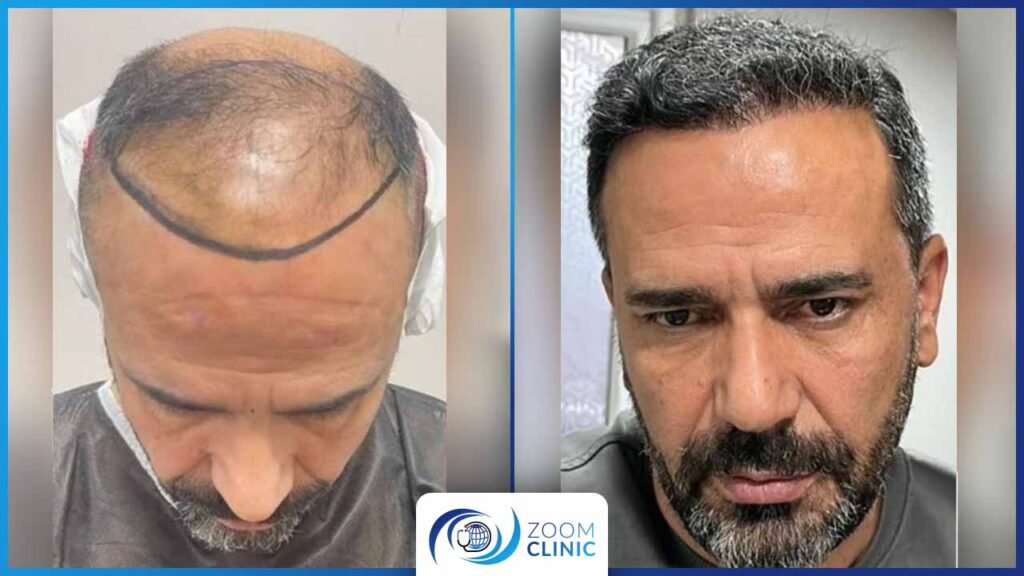
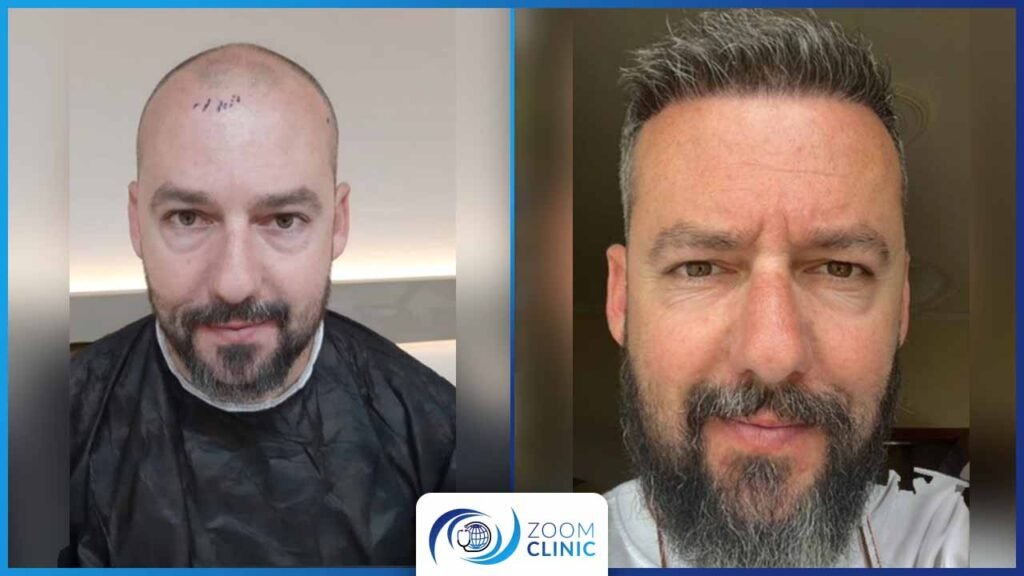
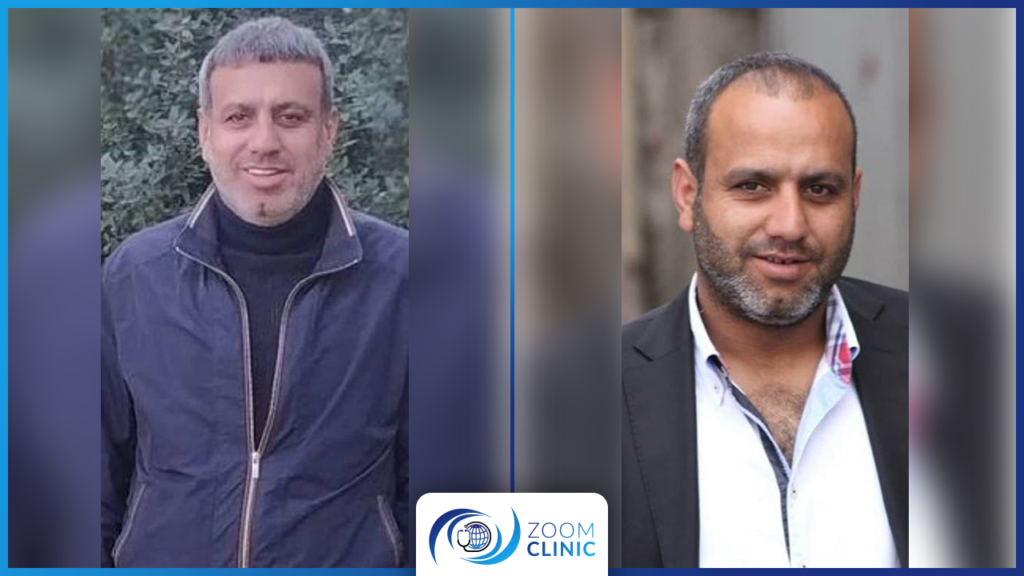
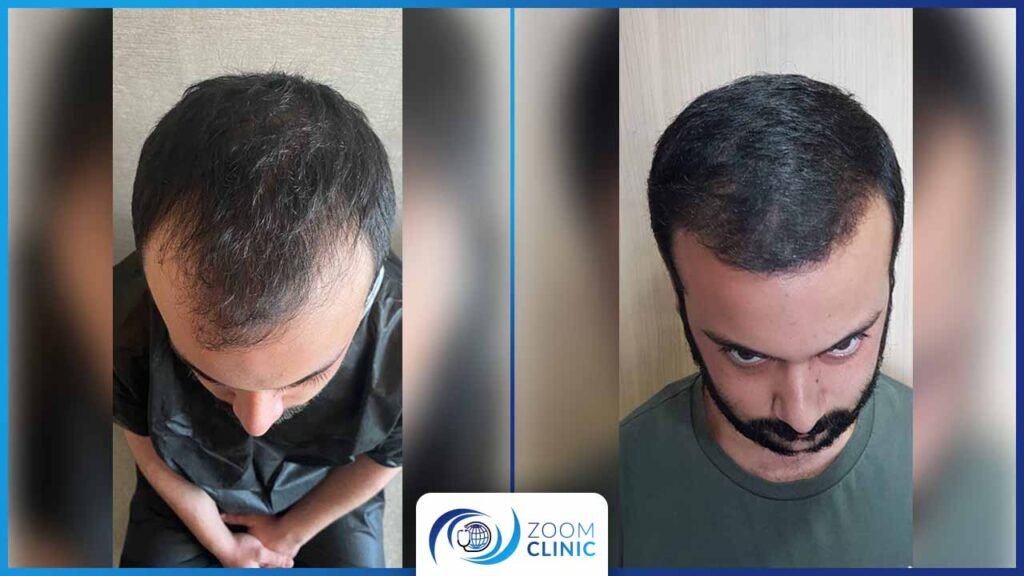
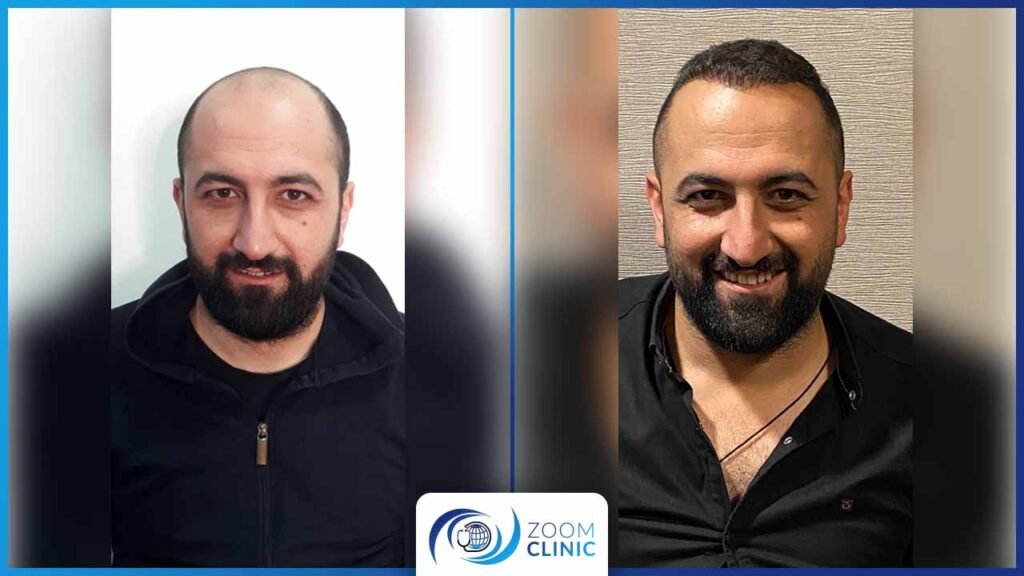
Conclusion
Understanding hair growth cycles is fundamental to achieving effective hair transplants and maintaining healthy hair. You can make informed decisions about hair transplant surgery and post-operative care by recognizing the importance of the anagen, catagen, telogen, and exogen phases.
At Zoom Clinic, our dedicated team of hair transplant specialists is committed to providing personalized care and ensuring that your hair restoration journey results in luscious, healthy locks.
Embark on your journey to a fuller head of hair with confidence, knowing that you are in expert hands that prioritize your well-being and satisfaction.
Get the special offer today from Zoom Clinic
Read Also:
Sapphire FUE Advanced Technology for Superior Hair Transplants


